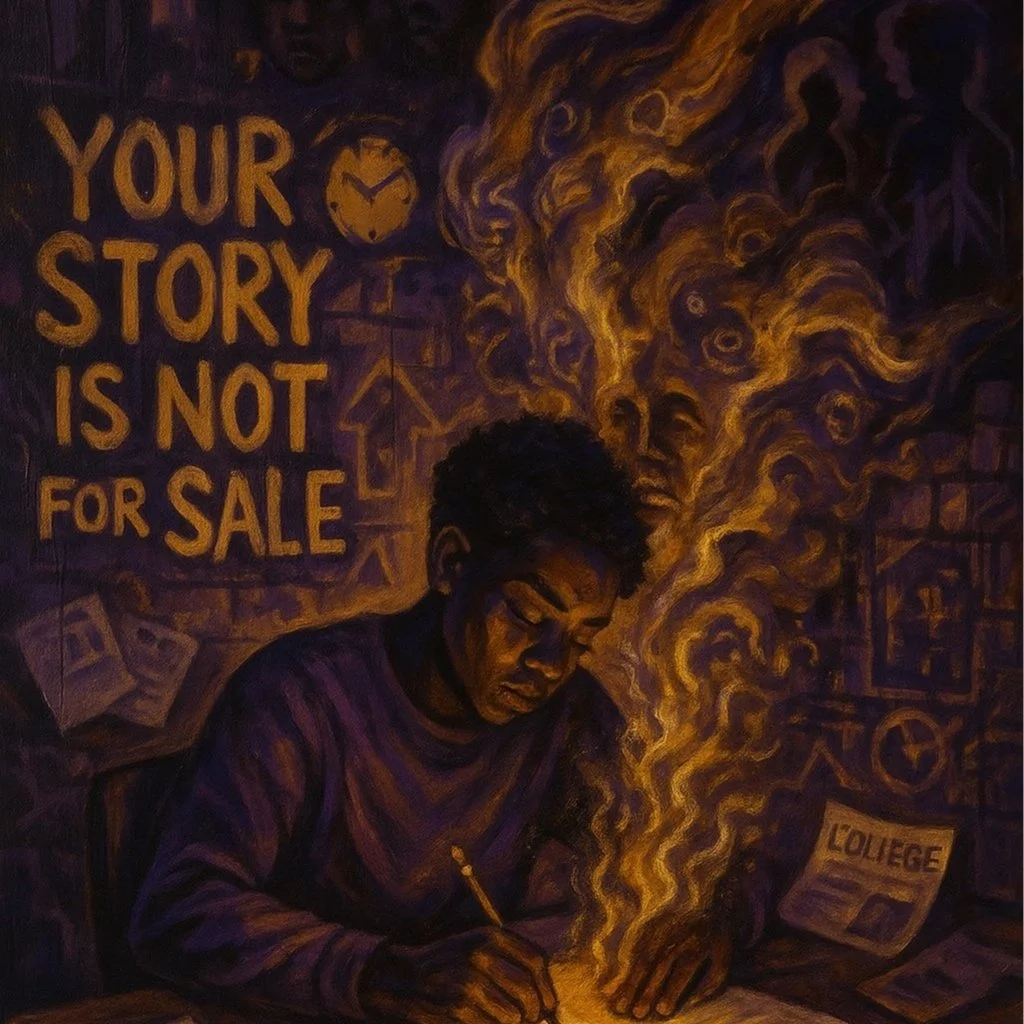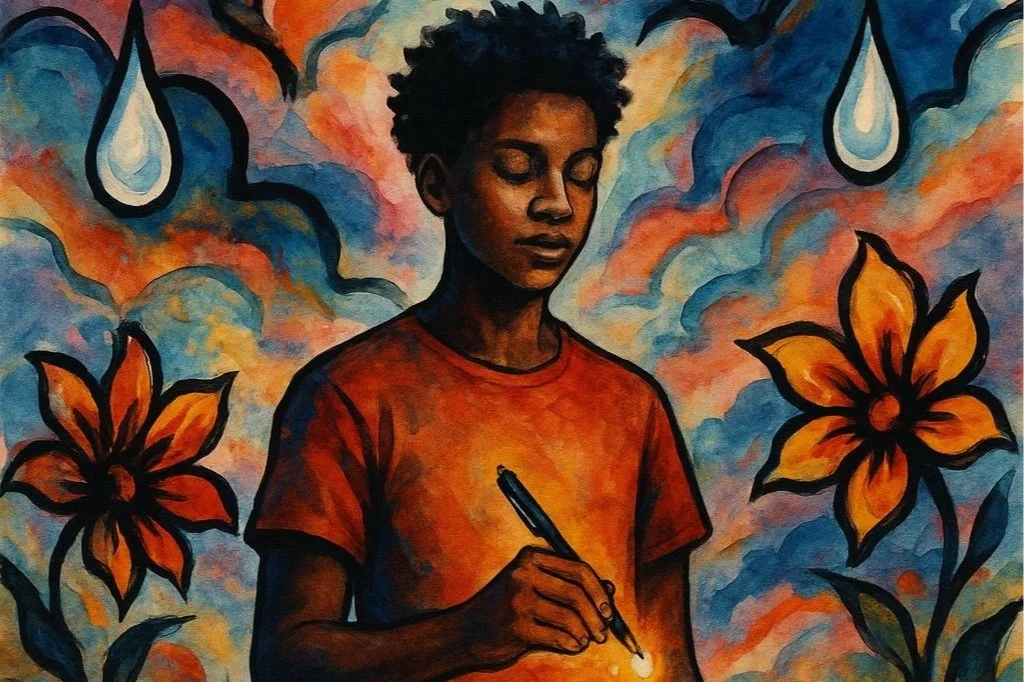Personal Statements: You Don’t Owe Your Trauma to Admissions
I’ve edited countless personal statements over the years.
But when it comes to my own, I’ve only written four—and I only remember two.
The first time, I was in high school.
The second? I wrote about personal statements themselves.
Both told a story. One of them hurt to write.
🕯️ The First One: Selling Pain Without Realizing It
Everyone told me the same thing:
“Make it personal.”
“Make it impactful.”
“Make them feel something.”
So I did.
I wrote about the moment I found out my parents were getting divorced—through a text message from my best friend. My little sister had told him what my dad had told her, and when I asked her about it, she simply said, “Because that’s what dad said.”
We were all in the car. My dad confirmed it was true. And by the time we got home, he packed up and left.
Before walking out, he sat me on my bed and told me,
“You’re just like me. And if you don’t change, you’ll end up on the same path.”
I didn’t fully understand what he meant at the time, but I knew I didn’t want to be the one leaving a family behind. That story, in all its rawness, became my statement—the memory I offered in exchange for admission.
But I’m not sharing that here to suggest you should do the same.
I’m sharing it to show how much weight we’re told to place into our personal statements.
And how quickly that weight becomes emotional currency we’re expected to spend.
🪞The Second One: Calling Out the Game
Years later, I wrote another personal statement—this time for a higher education program.
And I did something different: I called out the whole system.
I wrote about how strange it felt to have to sell my pain in order to get accepted.
How so many of us—especially Black and Brown students, first-gen kids, and folks from low-income backgrounds—feel like we have to prove our worth through struggle.
I remember showing it to my sisters for feedback.
They told me to tone it down.
“You can’t upset the people who are going to let you into the program.”
They weren’t wrong to be cautious.
But I wasn’t wrong to name the truth either.
📊 What I’ve Seen as an Editor
Over the years, I’ve read and edited hundreds of personal statements.
And I started to notice patterns:
Students of color and/or low-income backgrounds often write statements full of personal trauma—pain, loss, survival, resilience.
Other students tend to write about internships, volunteer roles, job experience—focused on learning, leadership, and opportunity.
The difference in tone?
It’s not just in the story.
It’s in the expectation.
And that’s a problem.
✍🏾 Let’s Get Real About What a Personal Statement Is Supposed to Be
Here’s what they don’t always tell you:
✅ You don’t have to write about trauma to write a strong personal statement.
✅ You do not owe your pain to anyone—not even a college admissions office.
✅ Your story has value because it’s yours. Not because it hurts.
Here’s what personal statements are actually meant to do:
Share who you are — your values, your voice, your purpose.
Showcase your growth — how you’ve learned, evolved, and come into your own.
Demonstrate writing skill — how clearly and compellingly you can communicate.
And yes—they’re personal.
But that doesn’t mean they have to be vulnerable.
Personal means it’s about you—your experience, your reflections, your insight.
Vulnerable means you’re emotionally exposed or sharing something tender.
You can be personal without being vulnerable.
You can be powerful without being painful.
🛠️ Tips for Writing Without Selling Your Pain
If you're sitting down to write a personal statement, start here:
Focus on one clear story or moment — this helps keep you grounded within the word limit.
Make it about learning — what did you gain? How did you change?
Write like a storyteller — with a beginning, middle, and reflection.
Highlight resilience, not just hardship — strength isn't always born in suffering.
Remember, you’re the author — and the narrator. You decide what gets told.
🔑 In Short: When It Comes to Personal Statements...
Authenticity over performance
Storytelling over sob stories
Growth over guilt
You don’t need a tragic backstory to be accepted.
You don’t need to bare your soul to be worthy.
What you need is to show who you are, how you think, and what matters to you.
Write the story you’re proud of—not the one you think they want to hear.
Edited with support from ChatGPT (OpenAI) to enhance clarity and flow, while staying true to the story’s voice.
All images in this post were generated using OpenAI’s DALL·E image model via ChatGPT.


